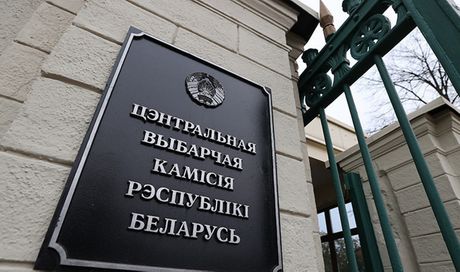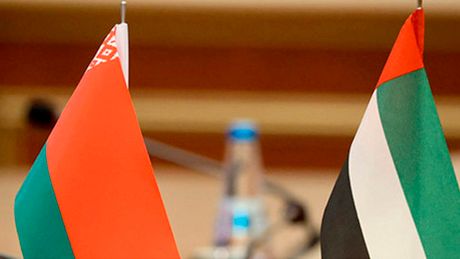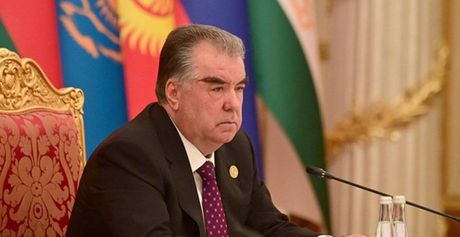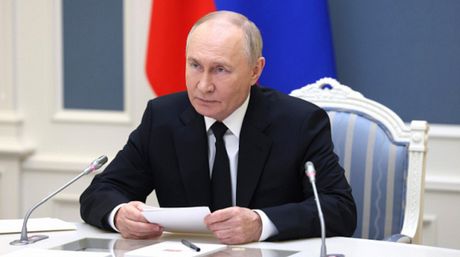Lavrov: Foreign players seek to impose their own rules on Belarus
16:40, 19 August
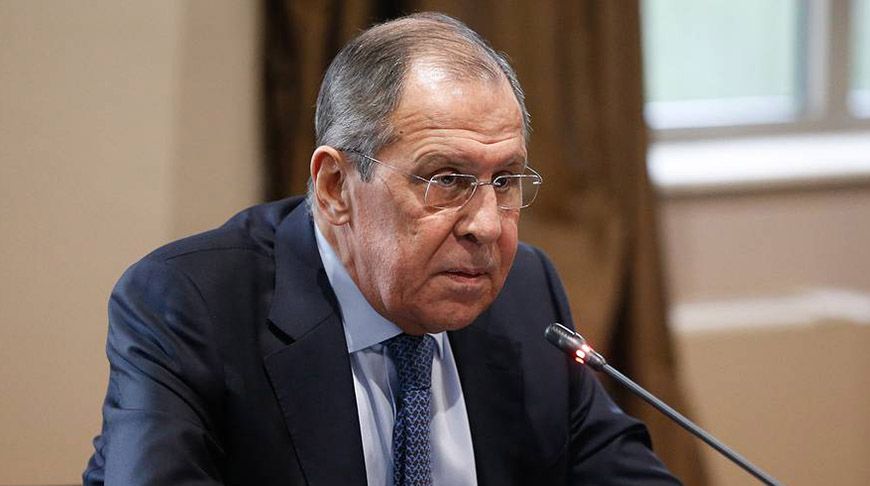
Photo courtesy of TASS
Foreign players seek to impose their own rules on the Belarusian people, Russian Foreign Minister Sergey Lavrov said in an interview with the Rossiya TV channel, a part of which has been published on the website of the Russian Foreign Ministry, BelTA has learned.
- Share on Facebook
- Share on VK
- Share on Twitter
“We are concerned about what is happening in Belarus," Sergey Lavrov said. "We are concerned about the attempt to use the internal difficulties that are facing Belarus, the Belarusian people and the country's leadership, to interfere in these affairs and processes from outside. Not just to interfere but to impose on Belarusians those rules that foreign players consider beneficial for themselves. No one hides the fact that it is about geopolitics, about the fight for the post-Soviet space. We have seen this fight earlier after the Soviet Union ceased to exist. The last example, of course, is Ukraine. What we are hearing now from European capitals, especially from the Baltic states (Lithuania, Estonia), as well as from Poland, the European Parliament is not about Lukashenko, human rights and democracy. It is all about geopolitics, about the very rules that our Western partners want to impose into everyday life on our continent and other parts of the world.”
The Russian foreign minister stressed that there is an international legal framework to be guided by while determining the attitude to events in a particular country. “In the case of Belarus, if its neighbors see flaws in the way the election was organized, then I would like to say that, first of all, Belarus is a sovereign state. The country has the Constitution, laws, procedures that can be used to challenge or question the results of the electoral process in a particular polling station or in general. Secondly, the Organization for Security and Cooperation in Europe (OSCE) has the Office for Democratic Institutions and Human Rights (ODIHR). One of its functions is to monitor national elections in the OSCE member states. This is part of the commitments assumed by the member states of this reputable organization. Now we are told that the violations during the election and electoral campaign were obvious, that they were recorded by voluntary observers, in social networks, on videos, etc. This bureau, which is supposed to observe the elections, says that it did not go to Belarus because an invitation came late. This is not true, to put it mildly, because the only obligation of Belarus, like any other OSCE member state, is to invite international observers to monitor national elections.”
Sergey Lavrov noted that the ODIHR approaches election observation differently: depending whether they are held to the east of Vienna, in the post-Soviet space, or to the west of Vienna, especially in the United States. “They may send 800 observers to one country, 12 or no one to others. For example, the Office has not sent observers to some Baltic countries several times, despite the fact that hundreds of thousands of people in Estonia and Latvia are deprived of the right to vote because they are non-citizens, the shameful status for people living in the European Union. For many years, Russia, together with its CIS partners, has proposed to introduce clear rules for election observation, including details such as when to send an invitation, how many observers to send as part of a fact-finding mission, and how many of them, depending on per capita calculations, to send to observe the voting. Our proposals were rejected, especially by the countries that now claim that the Office could not go to observe the elections because it had not been invited to. When they refused to develop such criteria, they told us that the ambiguity and flexibility that the Office has is the golden standard and must be cherished in every way possible. There is no need to explain that such ambiguity in the functions of the Office serves one purpose: to manipulate in the interest of those who make up the backbone of the staff there. The backbone of the Office is the members of NATO and the European Union. If the Office had been guided by what the member states actually agreed upon, it should not have taken it amiss and said that the invitation was sent too late. They should have gone to observe the election. In this case they would have had more grounds to report the violations they are currently talking about,” the minister said.
The Russian minister advised everyone to refrain from using this difficult situation in Belarus to undermine the normal, mutually respectful dialogue between the authorities and society, to make it provocative. “We see openly provocative calls in video materials and in social networks. We see the attempts to provoke law enforcement officers, including to use brutal force against them. I hope that the Belarusians, as well as all friends of Belarus abroad (and there are many of them), will be able to sort out their affairs and will not yield to those who need this country solely for geopolitical gains, to promote the well-known destructive logic - ‘you are either with Russia or with Europe'.
“Do you remember that this ‘either-or' logic was used by many officials of the EU member states during the Maidans in Ukraine in 2004 and 2014. When they are talking about mediation now, we hear proposals from Lithuania and Poland, we hear someone saying that the OSCE should act as a mediator. I urge everyone who puts forward such ideas to do it not through a microphone, but reach out to the Belarusians, and first of all, to the Belarusian authorities. I urge all those who say that this mediation is the only way out of the current situation, not to forget how our Western colleagues mediated during the Maidan in Kiev in 2014. Then, respected representatives of the European Union reached agreements, and we all remember what happened next. I am convinced that the Belarusian people, with their wisdom, are able to sort out the current situation themselves. I do not see any lack of readiness for a dialogue on the part of the authorities. I hope that the same readiness will be shown by those who are dissatisfied with the election results for one reason or another,” Sergey Lavrov said.



